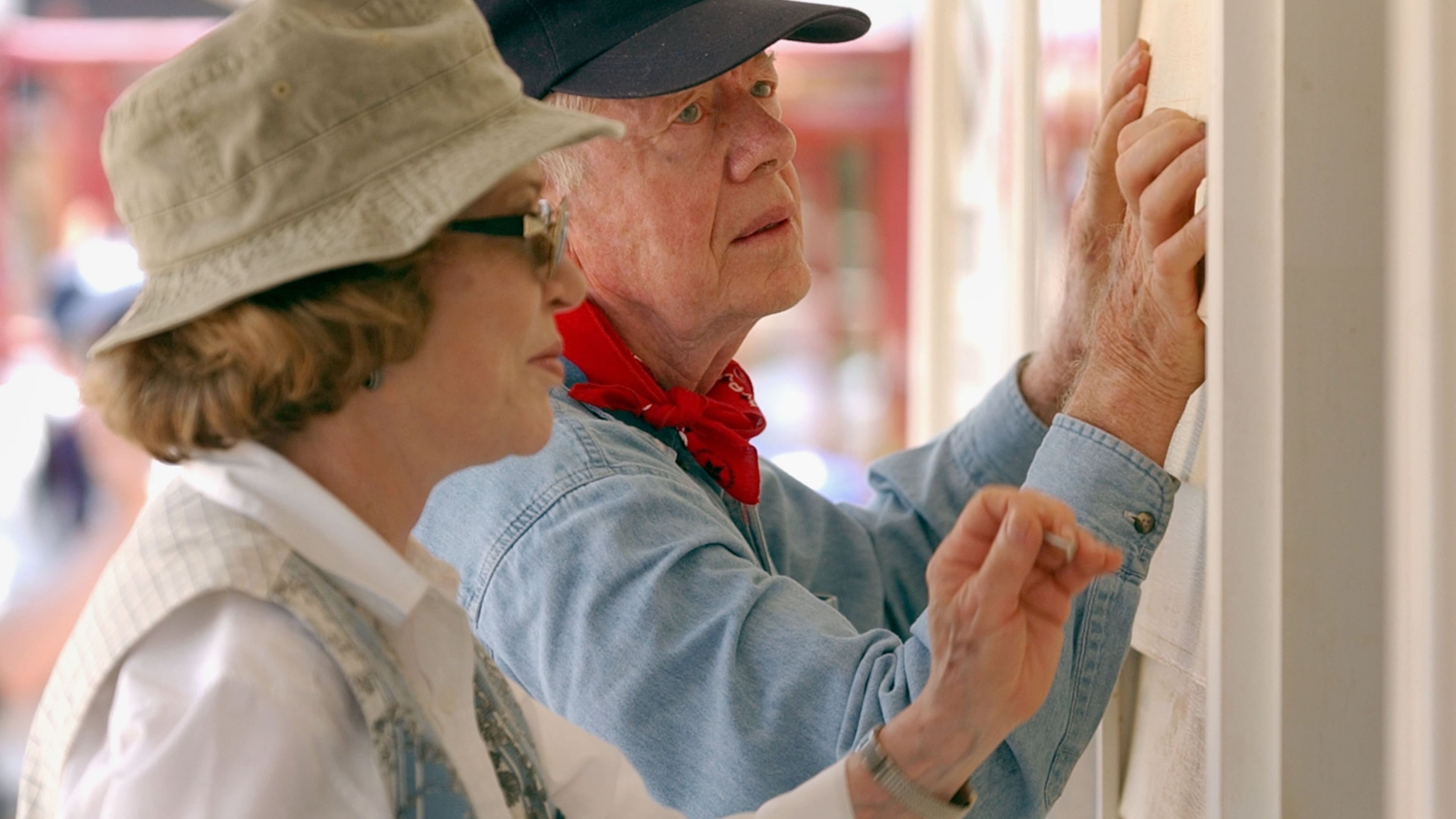Jimmy, Rosalynn Carter built Habitat for Humanity’s reputation

Former President Jimmy Carter and his wife Rosalynn’s involvement with Habitat for Humanity was so deep and publicized that it created a myth: that he both founded and ran the nonprofit that builds affordable housing.
“Neither of those things are true,” said Jonathan Reckford, chief executive officer of Habitat for Humanity International.
But Carter’s years of volunteer presence with the organization in the U.S. and abroad, which was founded in Americus, just down the road from his hometown of Plains, was essential to Habitat’s success, Reckford said.
The Carters first worked with Habitat in 1984, eight years after it was founded. At that point, Habitat had built fewer than 1,000 homes. Over the years, the Carter Work Project alone, a special program in Habitat that did construction drives in cities from Memphis, Tennessee to New York, has built, renovated or repaired more than 4,300 homes. The COVID-19 pandemic and the declining health of the Carters, both in their 90s, curtailed the yearly programs recently.
Habitat has built more than 800,000 homes across the world.
“Carter really put Habitat on the map,” Reckford said. “It was so unlikely to have a former U.S. president sleeping in a church basement and literally doing construction.”

The couple also inspired large numbers of volunteers to join Habitat’s cause, starting with their first weeklong Carter Work Project in New York City’s Lower East Side, which attracted global media attention. Since 1984, they have worked alongside more than 100,000 volunteers at work sites in 14 countries.
“The Carters have brought extraordinary international awareness to the great need for affordable housing and to Habitat for Humanity’s specific mission to be a part of the solution,” Reckford said.
A skilled carpenter, Carter was always one to get his hands dirty. The former president was one of only two people to work on each of the first 35 annual Carter Work Projects, the other being his wife.
“I’ve had the great privilege of being with them with heads of state around the world and also with some of the poorest people in the world, and I think the Carters are always the same in every setting,” Reckford said. “That’s an extraordinary mark of integrity.”
In 2015, when Carter announced the growing threat and toll of cancer on his body, he didn’t allow the disease to stop him from working at Habitat builds.
Carter received treatment for spots of melanoma found on his brain and planned to attend a build in Nepal that was eventually canceled because of a natural disaster and political unrest in the country. Instead, he worked at a Habitat build in Memphis in November 2015. He returned to Memphis a year and one day after his cancer announcement to host a Carter Work Project in August 2016.
Reckford, who has been on several builds with the Carters, said Habitat volunteers were always eager to join the former president.
“He worked hard, and he expected everyone else to work really hard. If he saw something he didn’t like, you would get that submarine commander blue-eyed gaze that you never want to get,” Reckford said lightheartedly.
Carter’s involvement with Habitat also was an extension of his legacy as a peacemaker. During the 2006 Carter Work Project in Lonavala, India, Reckford said he saw cultural and religious differences dissipate. Two men from different faiths — one Muslim and one Hindu — and from different social castes were going to share one of the new duplexes. After participating in the weeklong build, one gentleman put his arm around his new neighbor and said despite their differences they were now brothers, Reckford said.
“President Carter was such a great ambassador in breaking down barriers between people and building, both physical homes but building community in that process,” he said.
Because of Carter’s involvement with Habitat, Reckford said millions of people worldwide are living in new or improved homes.
“You have to admire the way he led his life, which was a life of service to others,” he said.


